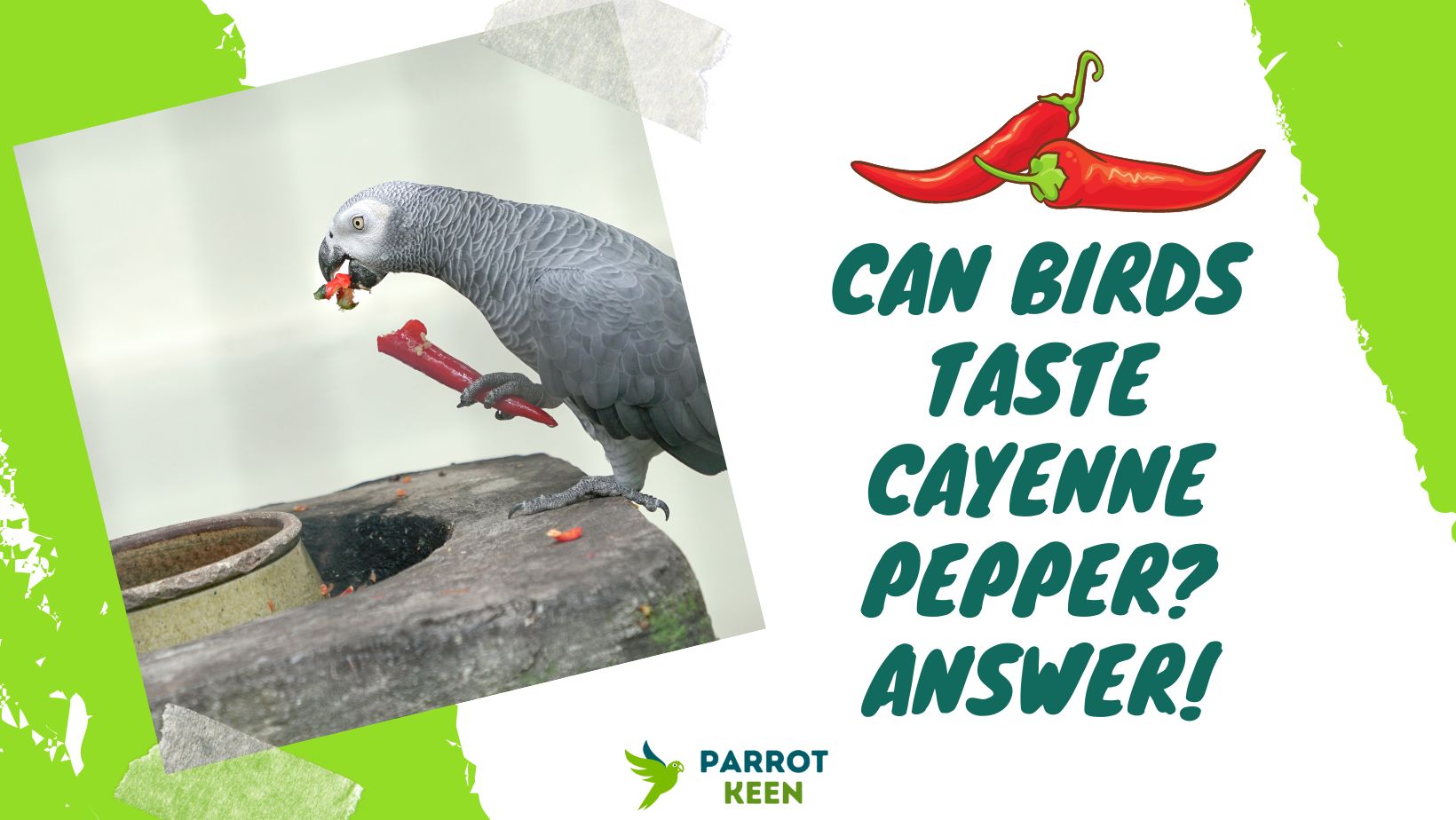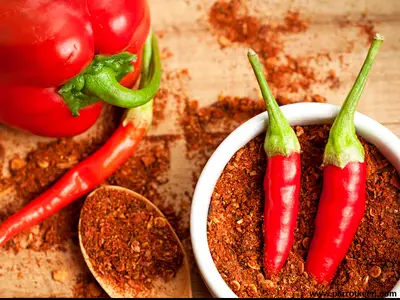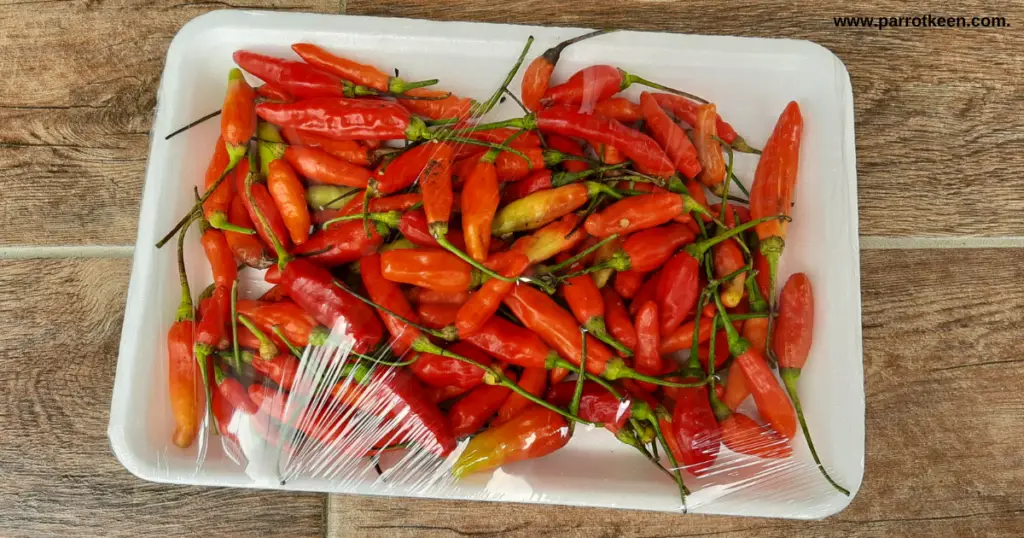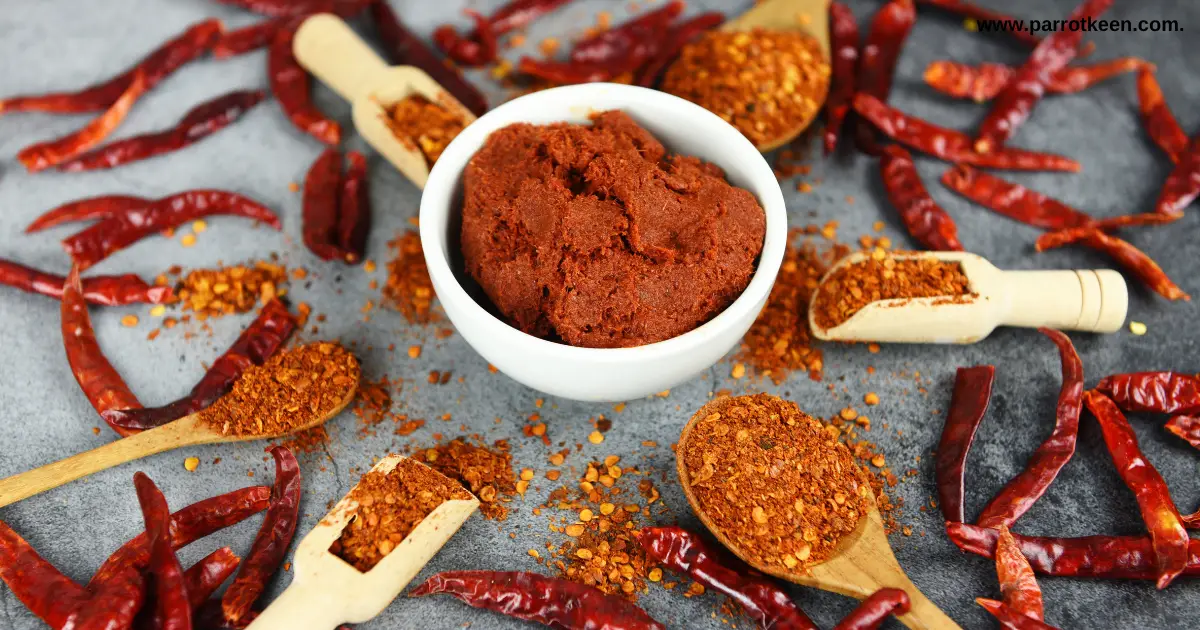
Can birds taste cayenne pepper? Using Cayenne Pepper In Bird Seeds
There’s a debate over whether or not birds can taste cayenne pepper. Some people say they can, while others argue they cannot.
So, what’s the truth? To answer that question, we first need to understand what cayenne pepper is and what it does.
Also, in this blog post, we will explore whether or not birds can eat cayenne pepper and if it harms them. Stay tuned to find out!
What is Cayenne Pepper?
Cayenne pepper is a popular spice that is used in many cuisines around the world. It is made from the Capsicum annuum plant’s dried fruit and has a fiery flavor. Cayenne pepper is often used to add heat to dishes and can be found in powder, flakes, or complete form.
In addition to its culinary uses, cayenne pepper also has several potential health benefits. Some research suggests that it may help to boost metabolism, relieve pain, and reduce inflammation.
Cayenne pepper is also a rich source of vitamins A and C, making it a nutritious addition to any diet.

Can Birds Taste Cayenne Pepper?
No, birds can’t taste cayenne pepper. A study published in 2008 found that birds lack the receptor that allows mammals to taste capsaicin, the active ingredient in cayenne peppers.
The researchers believe that this may be because birds are not as susceptible to predators as mammals are.
Consequently, they do not need to be able to taste capsaicin to avoid eating poisonous plants. The study found that birds will happily eat very high concentrations of capsaicin and do not appear to experience any adverse effects.
Some scientists believe that capsaicin may be beneficial for birds, as it has been shown to have antioxidant and antibacterial properties.
However, further research is needed to confirm these potential health benefits.
Can Birds Eat Cayenne Pepper?
Yes, birds can eat cayenne pepper. Some bird species use cayenne pepper to deter predators. The capsaicin in cayenne pepper is an irritant to mammals, but birds are unaffected by it.
However, pepper can cause irritation if it gets into a bird’s eye. For this reason, it is best to use caution when feeding cayenne pepper to birds.
Will Red Pepper Flakes Hurt Birds?
Red pepper flakes will not hurt your bird. In fact, they will have no effect on the bird whatsoever when fed moderately. The reason for this is that red pepper flakes are made from dried, crushed red peppers, which contain capsaicin.
Capsaicin is the compound that gives peppers their heat, but it is not harmful to birds. Capsaicin can actually help to keep birds warm in cold weather.
So, adding red pepper flakes to your bird feed won’t make the birds hot; it can help them to stay warm and healthy during the winter months.

Will Cayenne Pepper Hurt Hummingbirds?
Most people know that birds can’t taste pepper, but did you know that hummingbirds certainly can? While Cayenne pepper may not be harmful to them if ingested, it is not part of the normal hummingbird diet and, therefore, should be avoided.
Cayenne pepper can cause stomach upset in hummingbirds and may even lead to dehydration. If you must use cayenne pepper to deter pests from your garden, be sure to keep it away from areas where hummingbirds feed.
Following these simple guidelines can help ensure that these delicate creatures stay healthy and safe.
Can You Put Cayenne Pepper In Bird Seed?
Yes. A lot of people add cayenne pepper to their bird seed, as it is a natural way to deter pests.
Cayenne pepper won’t hurt the birds, making the seed less appealing to pests.
Cayenne pepper can help to keep away squirrels, mice, and other rodents that may try to steal the bird seed. In addition, the spice can also help to keep away birds that may carry diseases, such as West Nile Virus.
While cayenne pepper is safe for birds, it is important to use it in moderation.
Remember that moderation is very important when it comes to a bird’s diet and too much Cayenne pepper in a bird seed can affect your bird’s digestive system in a way you didn’t expect, so it is important to follow the directions on the bottle or pack.
Generally, a teaspoon of cayenne pepper per cup of bird seed is sufficient. By following these guidelines, you can enjoy the benefits of cayenne pepper without harming your feathered friends.
Can I Put Cayenne Pepper In My Bird Feeder?
Are you wondering if you can add cayenne pepper to your bird feeder? You might be surprised to learn that many bird enthusiasts actually do put cayenne pepper in their feeders!
This is because cayenne pepper can help deter pests from raiding your feeder and eating all the food. They have a very sensitive sense of smell, and the strong scent of cayenne pepper can help keep them away.
In addition, the heat from the pepper can also discourage pests from eating the food in your feeder.
Cayenne peppers have been shown to benefit birds in many ways. This is another crucial reason why most bird owners put cayenne pepper in their bird feeders.
If you’re looking for a way to keep pests from emptying your feeder, adding a bit of cayenne pepper could be the answer.
How Can I Make Spicy Bird Seeds With Cayenne Pepper?
Cayenne pepper is a great option if you’re looking for a way to add a little spice to your bird seed. Simply measure out three (3) tablespoons of the powder and add it to the seed mix.
Then, use a wooden spoon or stick to stir everything together until the cayenne is evenly distributed. Once that’s done, you can feed it to your bird immediately.
Alternatively, you can either spread the seed mix on a baking sheet and let it air dry or store it in an airtight container for later use. Just remember that if you go the sealed container route, you’ll need to add a few holes to allow ventilation.
Otherwise, your bird seed could end up moldy. And there you have it – with just a few simple steps, you’ve created your very own spicy bird seed blend!
Can Birds Detect Cayenne Pepper?
No, birds cannot detect cayenne pepper. Birds have a different taste receptor than mammals, so they can’t detect the same heat flavors as we can.
However, this doesn’t mean they don’t have a sense of taste. Birds have been shown to be able to distinguish between different types of food based on their flavor. So while they may not be able to taste cayenne pepper, they can still appreciate the flavor of their favorite foods.
Are There Any Challenges When Feeding Hot-pepper Birdseed to Birds?
Though bird feeders are commonly found in many yards and gardens, there are a few challenges that come with them. One such challenge is feeding hot-pepper birdseed to birds.
While this type of seed can deter pests, it can also cause digestive issues for birds if they overeat. As a result, it is important to be careful when feeding hot-pepper birdseed to birds and ensure that the feeder is not easily accessible to pests.
In addition, it is crucial to clean the feeder regularly to prevent the build-up of mold or bacteria. Taking these precautions ensures that your feathered friends can enjoy their meals without any digestive issues.
Nutritional Value of Cayenne Pepper to Birds
Many birds enjoy eating cayenne peppers, and the peppers can provide some important nutrients. Cayenne peppers are a good source of vitamin A, which is essential for vision and cell growth. They also contain a fair amount of vitamin C.
Cayenne peppers are also a good source of antioxidants. Antioxidants are important for bird health because they help protect cells from damage. They also help reduce inflammation and improve circulation.
In addition, cayenne peppers contain a compound called capsaicin, which gives them their characteristic heat.
Some birds find this compound to be stimulating, and it can help them to stay alert and active.
While cayenne peppers are not necessary for a bird’s diet, they can provide some valuable nutrients.
How To Feed Cayenne Peppers To Birds

There are a variety of ways to feed cayenne peppers to birds. One method is to mix the peppers into their regular bird seed. Another way is to put out a dish of water mixed with a small amount of cayenne pepper powder.
The powder will give the water a red tint, and any bird that drinks from the dish will get a small amount of the pepper.
Yet another option is to make a bird feeder specifically for cayenne peppers. This can be done by stringing whole peppers on a line or making a feeder out of a container with small holes drilled in it.
Regardless of your choice, feeding cayenne peppers to birds is a great way to add some spice to their diet.
Do not forget that pepper powder irritates or affects a bird’s eyes. So, you must exercise caution and make sure not to put out too much.
A little goes a long way with these fiery little creatures. Also, take care when handling pepper powder, as it can irritate your own eyes and skin.
Wear gloves if necessary.
Why Does Cayenne Pepper Deter Squirrels From Bird Seed?
Cayenne pepper is a type of chili pepper. It is also known for its ability to deter animals, including squirrels.
There are a few reasons why cayenne pepper may be effective at deterring squirrels.
- Firstly, cayenne pepper is spicy, and Squirrels seem to avoid spicy foods.
- Secondly, cayenne pepper contains capsaicin, a substance that can irritate the eyes and nose. Squirrels are sensitive to this substance, which may cause them to stay away from areas where it is present.
- Finally, cayenne pepper has a strong smell that may also help to keep squirrels away. For these reasons, cayenne pepper is often used as a natural squirrel repellent.
Conclusion: Can Birds Taste Cayenne Pepper?
Cayenne pepper has a long history of use as both a culinary spice and traditional medicine. Research suggests that cayenne pepper may also have some benefits for birds.
More studies are needed to determine the full extent of these benefits, but adding a small amount of cayenne pepper to your bird’s diet could be a good way to help keep them healthy.
Please share this article with other bird enthusiasts that you know if you find it helpful! Do you have any experience with cayenne pepper and birds?
Tell us about it in the comments below.

Hi, I am Thersa and Welcome to ParrotKeen, your number one place to get all the information you need about your cute parrot. I hope You Find it useful.
